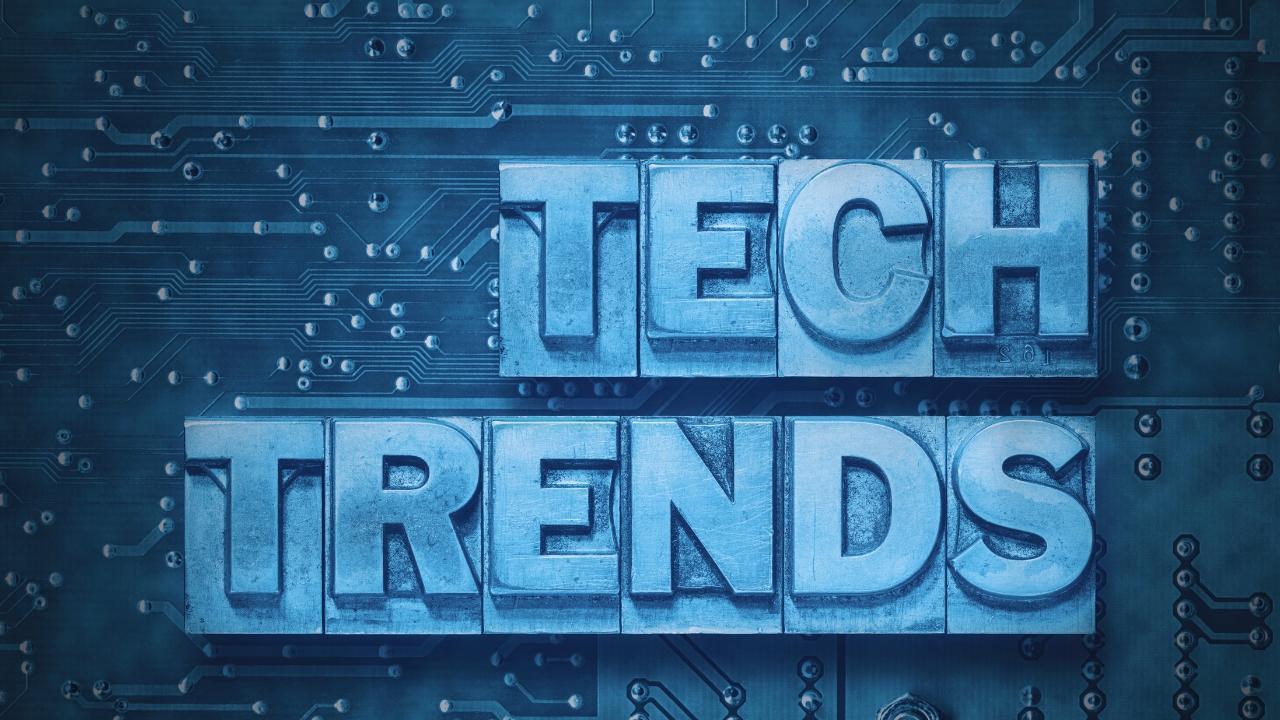You have not yet added any article to your bookmarks!

Join 10k+ people to get notified about new posts, news and tips.
Do not worry we don't spam!

Post by : Anis Farhan
As the world races into 2025, technology is no longer just about innovation for the sake of disruption. It is about shaping a future that is responsible, ethical, and beneficial to both people and the planet. Key trends such as digital ethics, artificial intelligence, sustainable innovations, and air mobility are leading the conversation. These shifts mark the beginning of an era where technology companies are judged not just by their breakthroughs but also by the values embedded in their innovations.
Digital ethics is no longer an abstract discussion confined to research labs. With artificial intelligence, data analytics, and automation becoming part of everyday life, concerns around privacy, accountability, and fairness have grown. By 2025, businesses are embedding ethical frameworks into their operations. Organizations now see responsible AI as essential to earning customer trust. For instance, algorithms must explain decisions transparently and ensure that biases are minimized.
Governments and corporations are also aligning on stricter regulatory norms. This collective effort means companies can no longer afford to view ethics as optional. Instead, digital ethics has become a central pillar of competitiveness, influencing consumer choices and global partnerships.
Artificial intelligence has long been synonymous with automation and cost savings. However, in 2025, AI is evolving into a partner for decision-making, creativity, and innovation. From healthcare diagnostics to climate modeling, AI is being used responsibly to solve problems that once seemed insurmountable.
Instead of replacing humans, the trend is shifting toward augmentation — AI working alongside human intelligence. This balance ensures that technology enhances productivity while safeguarding jobs and creativity. The concept of "responsible AI" emphasizes transparency, accountability, and inclusivity in how models are built and deployed.
One of the most revolutionary advancements shaping 2025 is the growth of air mobility. Electric vertical takeoff and landing (eVTOL) vehicles are no longer science fiction; they are beginning to enter urban transport networks. With cities grappling with congestion, eVTOLs promise quicker commutes, reduced carbon emissions, and futuristic travel experiences.
Tech giants and startups alike are investing heavily in this sector. Countries with strong aerospace industries, like the United States, China, and Japan, are leading pilots of air taxis. Yet, beyond the excitement of futuristic transport, the focus is on ensuring safety, energy efficiency, and sustainability. Air mobility has the potential to redefine city landscapes while prioritizing environmental responsibility.
Sustainability is not an add-on anymore; it is the foundation of every major technological trend. From clean energy breakthroughs to eco-friendly data centers, industries are integrating environmental responsibility into their business models. By 2025, consumers and investors alike demand accountability in how resources are used.
Green technologies such as carbon-neutral cloud computing, recyclable electronics, and sustainable manufacturing processes are redefining global industries. Tech companies are realizing that sustainability is not just about compliance but also a way to gain a competitive advantage. Brands that fail to embrace these practices risk losing market relevance.
Technology in 2025 is no longer confined to specific industries. The boundaries between healthcare, finance, retail, and transport are blurring. AI-powered fintech solutions, smart healthcare platforms, and immersive retail experiences are examples of how convergence is reshaping economies.
This cross-industry collaboration is pushing businesses to adopt more flexible, innovation-driven models. Companies are investing in ecosystems rather than standalone products, ensuring long-term customer engagement. The convergence trend also emphasizes inclusivity, as technology enables wider access to healthcare, education, and financial tools across global markets.
With increasing reliance on digital platforms, cybersecurity has become a critical component of innovation. In 2025, cyber threats are not just corporate risks but national security challenges. From ransomware to state-sponsored cyberattacks, the stakes are higher than ever.
The trend toward responsible innovation highlights that cybersecurity cannot be reactive. Businesses must invest in proactive systems powered by AI and predictive analytics. Equally important is collaboration across nations to build secure digital ecosystems. Trust in technology is only possible when users feel their data, identity, and systems are safe.
Technology’s future is increasingly focused on people, not just machines. From user experience design to inclusive innovation, human-centricity is a defining trend in 2025. Companies are adopting accessibility standards, designing products for diverse users, and ensuring that innovations truly solve human problems.
The rise of mental health technologies, remote wellness platforms, and immersive educational tools reflects this shift. People now demand technology that fits seamlessly into their lifestyles, prioritizing convenience without compromising ethics. The human factor is no longer secondary but the driving force behind global innovation.
The underlying theme of all 2025 technology trends is responsibility. Whether in AI, sustainability, or air mobility, companies that align with ethical principles are setting themselves apart. Investors are also rewarding businesses with strong ESG (Environmental, Social, and Governance) practices, creating a cycle where responsibility drives growth.
This responsible innovation economy is not just about responding to market pressures; it is about building long-term trust. Businesses, governments, and consumers are working in unison to ensure that technology supports society’s broader goals instead of undermining them.
Looking beyond 2025, technology will continue to evolve, but the foundation being built now is critical. The emphasis on ethics, sustainability, and inclusivity ensures that the innovations of the future will be resilient and trusted. From AI-driven breakthroughs to futuristic air mobility networks, the coming years promise transformative change.
The difference, however, lies in how this change is managed. Rather than unchecked disruption, the future is about careful, collaborative, and human-driven innovation. The economy of tomorrow will not be defined solely by technological capability but by responsibility.
This article is a general editorial analysis of technology trends in 2025 and their potential global impact. It is based on observed industry developments and does not provide financial, investment, or technological advice. Readers are encouraged to follow updates from verified technology authorities for more detailed guidance.










Two Telangana Women Die in California Road Accident, Families Seek Help
Two Telangana women pursuing Master's in the US died in a tragic California crash. Families urge gov

Ranveer Singh’s Dhurandhar Roars Past ₹1100 Cr Worldwide
Ranveer Singh’s Dhurandhar stays unstoppable in week four, crossing ₹1100 crore globally and overtak

Asian Stocks Surge as Dollar Dips, Silver Hits $80 Amid Rate Cut Hopes
Asian markets rally to six-week highs while silver breaks $80, driven by Federal Reserve rate cut ex

Balendra Shah Joins Rastriya Swatantra Party Ahead of Nepal Polls
Kathmandu Mayor Balendra Shah allies with Rastriya Swatantra Party, led by Rabi Lamichhane, to chall

Australia launches review of law enforcement after Bondi shooting
Australia begins an independent review of law enforcement actions and laws after the Bondi mass shoo

Akshaye Khanna exits Drishyam 3; Jaideep Ahlawat steps in fast
Producer confirms Jaideep Ahlawat replaces Akshaye Khanna in Drishyam 3 after actor’s sudden exit ov